At the Center for Global Health (CGH) TUM we are actively engaged in the fight against the COVID-19 pandemic.
Here, we keep you updated with our work.
Updated: 01.02.2022
Policy Brief: Pandemic Treaty
The Covid-19 pandemic has shown the importance of sustainable epidemic/pandemic preparedness for the prevention of emerging infectious diseases. In particular, it has highlighted the crucial role of the One Health (OH) approach in pandemic prevention. The Policy Brief “One Health as a pillar for a transformative pandemic treaty” commissioned by the Graduate Institute Geneva and authored by Prof. Andrea Winkler, co-director Center for Global, TUM, together with colleagues from Canada, Norway, and Ghana, presents the rationale for integrating a OH approach in a pandemic treaty as discussed at a special session of the World Health Assembly in November 2021. Based on a rapid review of relevant international treaties, agreements, declarations and universally accepted principles, the policy brief provides explanations on the central role that an equity-oriented OH approach can play in pandemic prevention and preparedness. As a final remark, the authors provide recommendations for the integration of a One Health approach into a prospective pandemic treaty.
To read up on the policy brief for pandemic treaty, click here.
Click here to view the World Health Assembly Special Session.
Public Engagement
New Release: Planetary Health
Life cycles and transmission of many infectious diseases are inseparably linked to climate, and in a globalized world we are also affected by infectious diseases that are not endemic in Europe. It is not clear yet if this trend can be halted in the near future, unless systemic, socio-economic changes are rapidly intiated by policy makers.
In our chapter "Infectology", we dive deeper into the impact of the climate crisis on infectious diseases, especially with a focus on Europe.
In our chapeter "Neurology" we dive deeper into the impact of the climate crisis on brain health.
Now available with a 10€ discount here
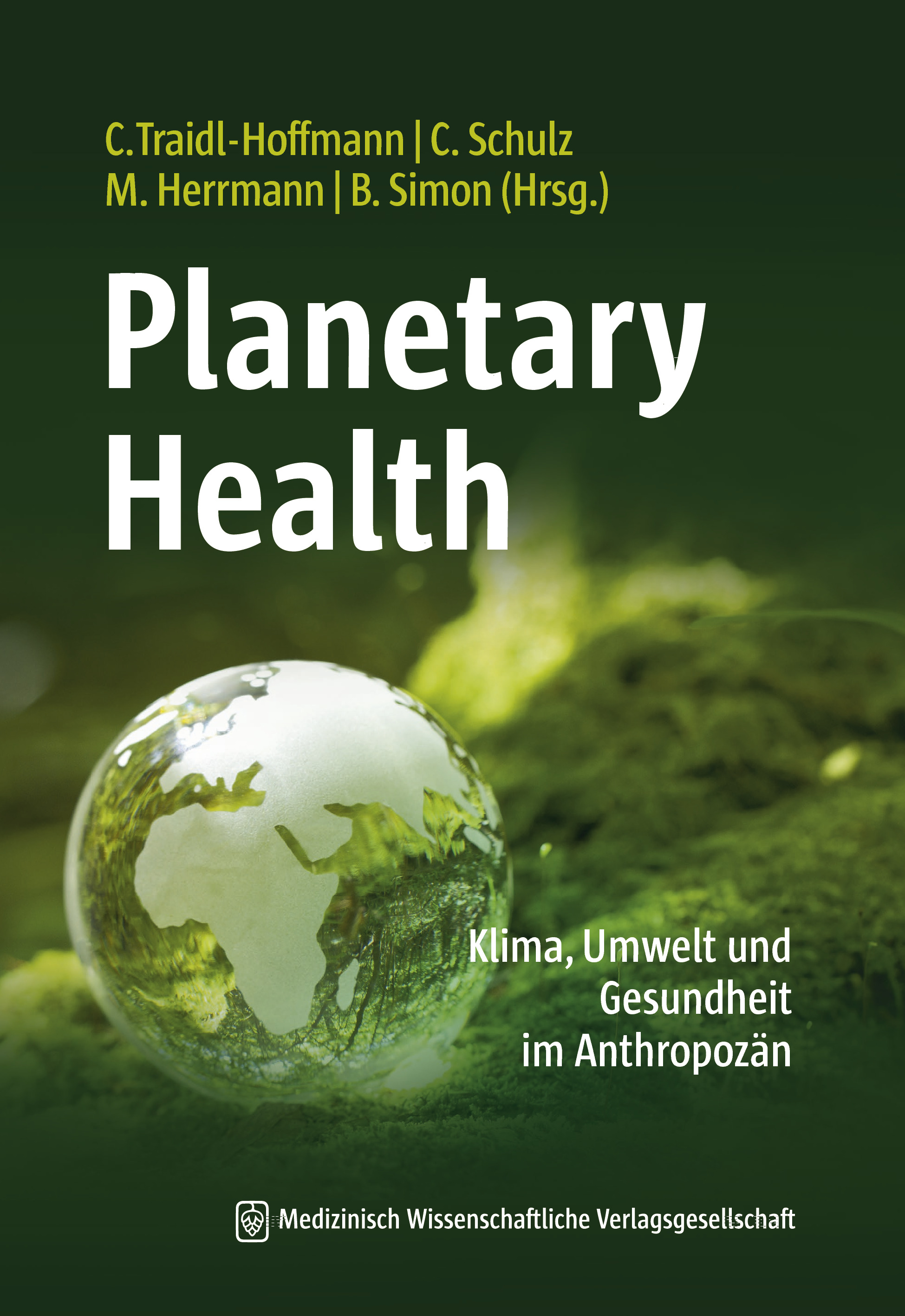
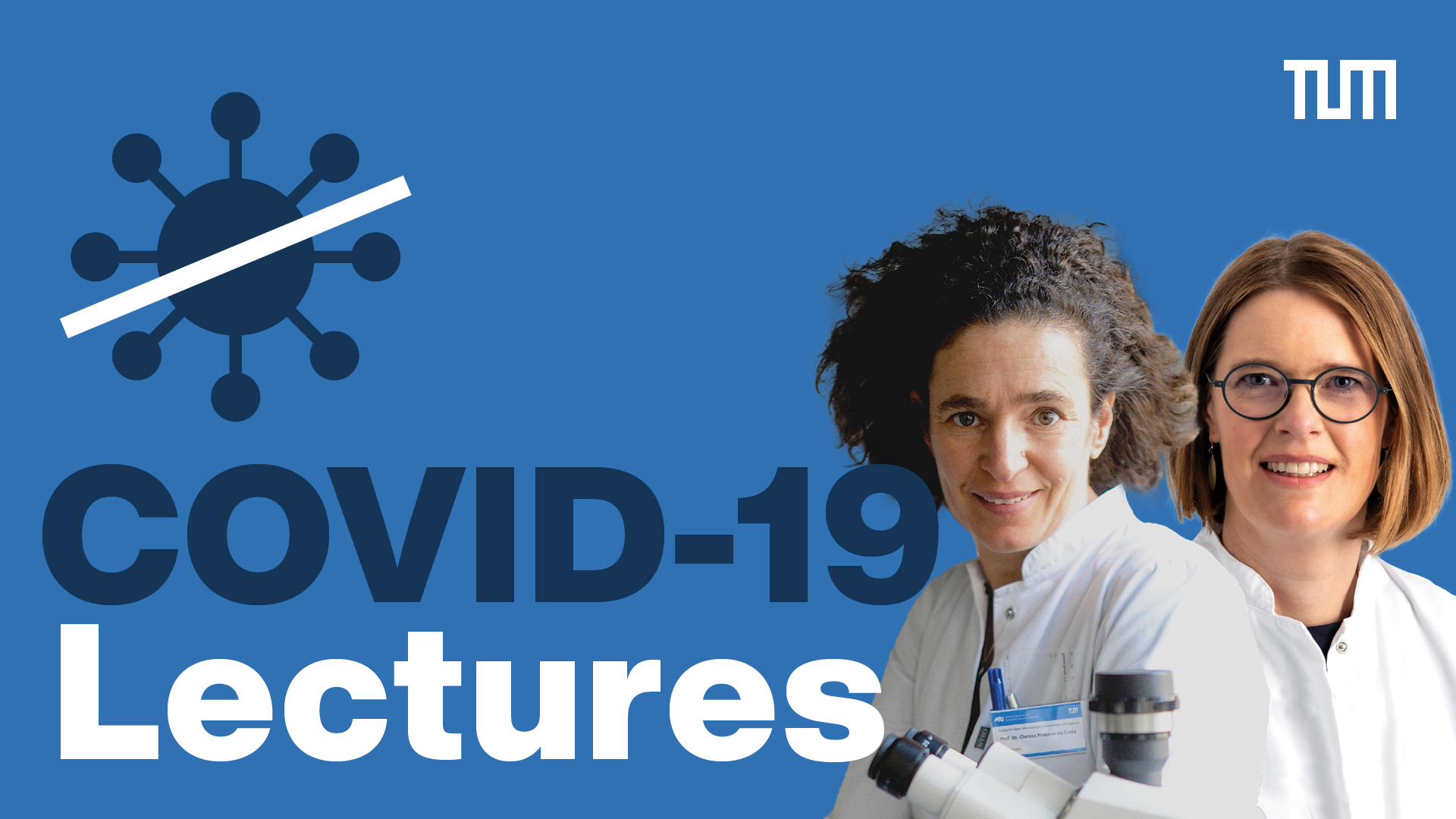
COVID-19 Associated Headache - Webinar - August 4, 2021, 5 pm (CEST)
As headaches are the most common COVID-19-associated neurological symptom, the need for further study and research is increasing. To learn, discuss, and educate about Covid-19-associated headaches, the Global Migraine and Pain Society, in collaboration with the Global COVID-19 Research Coalition, has organized a webinar featuring international experts. Prof. Andrea S Winkler will give the opening speech of the webinar, which will be moderated by Betül Baykan and Paolo Marteletti. During the webinar, there will be nine different presentations on topics including research challenges, characteristics, and phenotypes of COVID-19-associated headache as well as Long-COVID headache and much more. Case discussions and project proposals on the topic will finish up the event.
Find the Registration here!
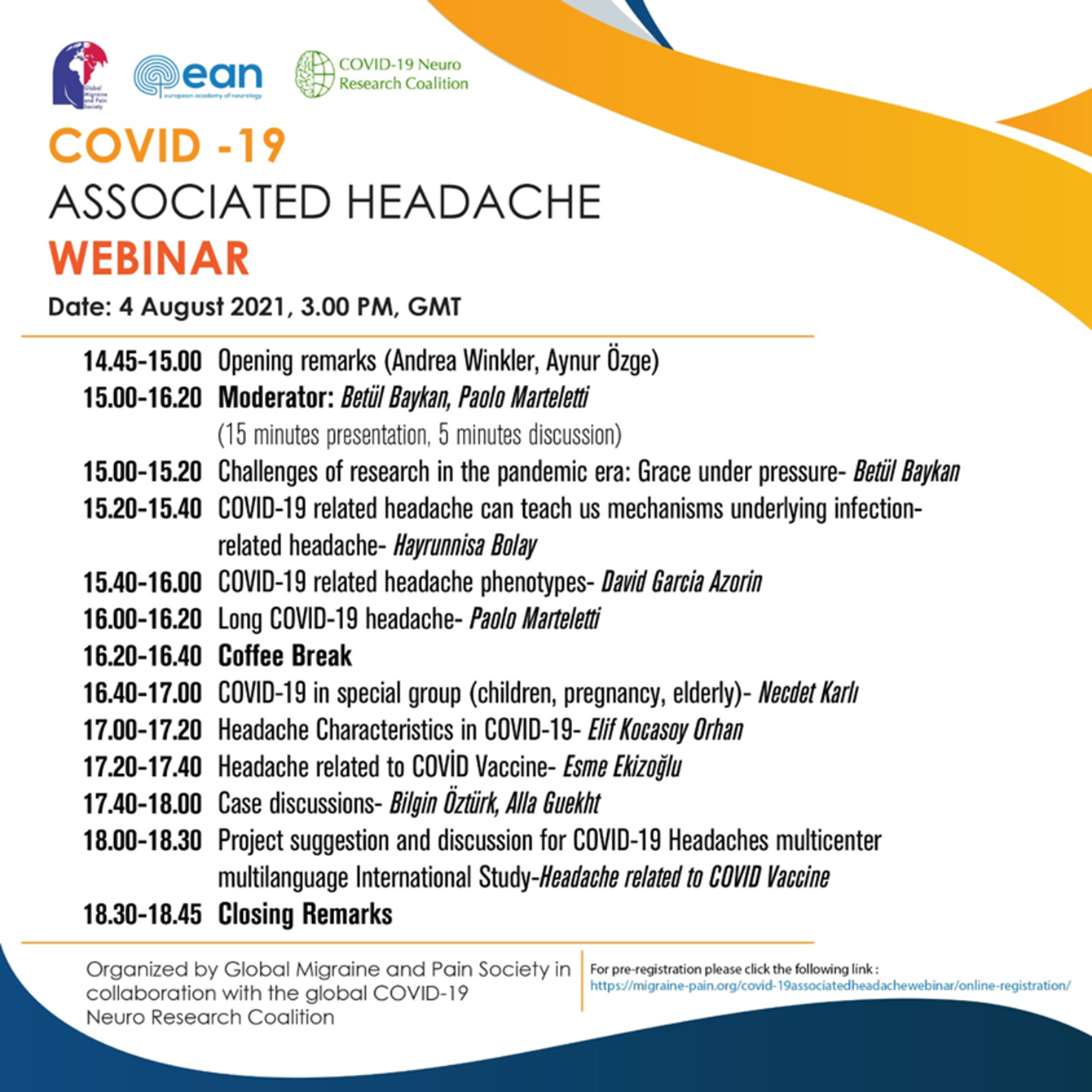
Future of Health – Interdisciplinary Summit and Summer School by the Technical University of Munich - 13. – 18. September 2021
Globally, the failure to invest into sufficient resources in core health priorities and systems is being discussed. The Technical University of Munich organized an interdisciplinary summit to address the current health challenges and focus on the fundamental shifts inevitable for reaching sustainable health.
In September 2021, international experts will provide insights into the healthcare sector and future challenges to offer a broad range of perspectives. As such, the following key elements will be addressed at the Summit: Economic Growth and Improving Quality of Life and Life Expectancy; Lessons from COVID-19 and How to Prepare for the Next Global Health Challenge; The Health System of the Future; The Shift from a Disease to a Wellness System; Technology in Health Systems; Sustainable Change in Health Care.
Prof. Andrea Winkler and Prof. da Costa will offer a workshop on Global One Health on Day 2 of the Summit (September 14, 2021).
For more information, click here!
In addition, based on the interdisciplinary “Future of Health” summit, a summer school is offered for undergraduates, postgraduates, and young professionals, to work on innovative and sustainable health solutions. For more information, click here!
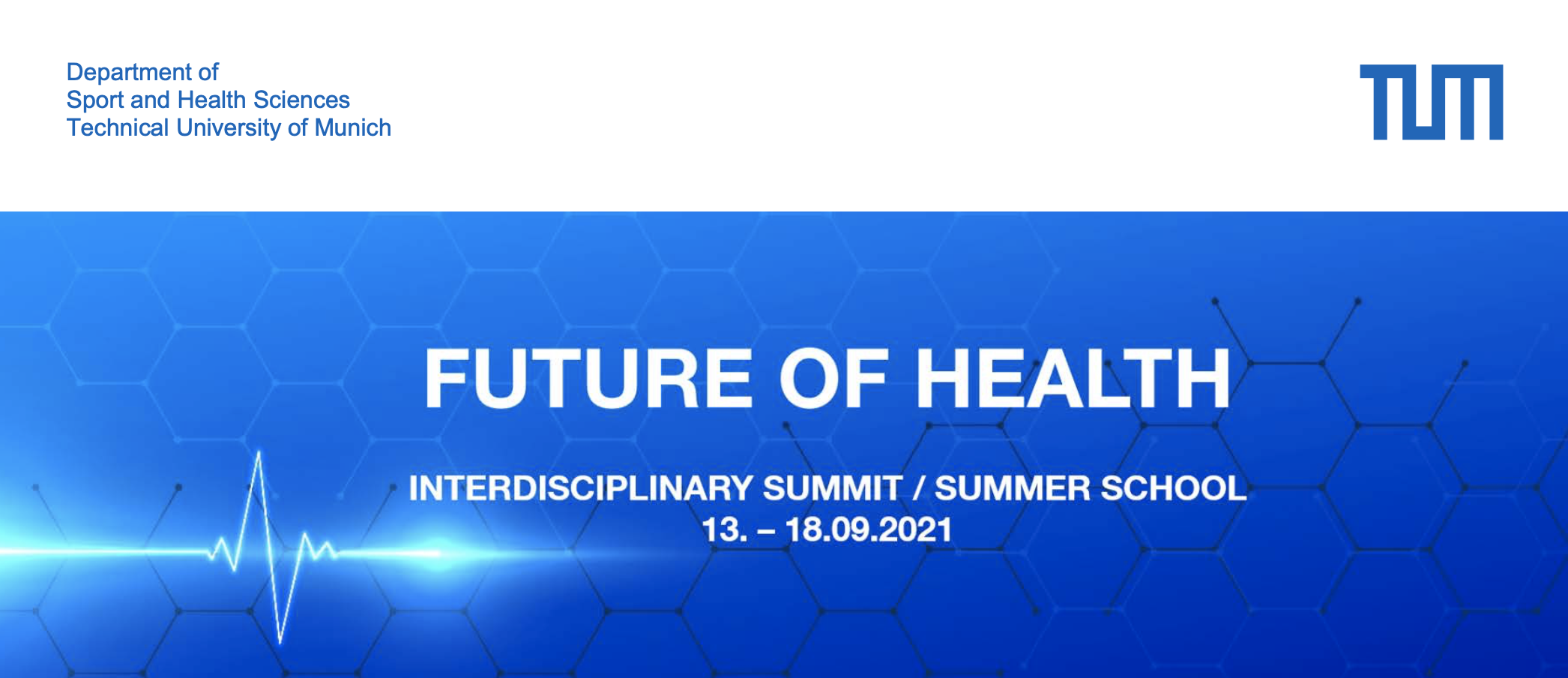
Domestic violence in times of Corona - a balance sheet? - Workshop
July 22, 2021, 4-5.30 pm (CEST)
To what extent does concern about job loss and the associated financial burden increase intra-family tensions? The record of collateral damage from the measures taken to contain the pandemic includes the rise in domestic violence, which mainly affects women and children. In addition to the reported cases, the suspected number of unreported cases is to be much higher. Often, those affected are unable to take advantage of available support systems or were not aware of them. This Workshop by Women in Global Health Germany, Prof. Janina Steinert (TUM) and Dr. med. Saskia Etzold (Charité Berlin) will discuss the background and possible solutions concerning this problem. The workshop is conceptualized and organized by Prof. Andrea S. Winkler (Center for Global Health TUM, Department of Neurology) and Dr. Martina Kloepfer (Institut für Gender-Gesundheit e.V.). The workshop will be in German.
Register until 18.07.21 HERE
11th Edition of the COVID-19 Lectures Series by TUM:
Neuro-COVID and Post-COVID: Acute and Chronic Effects on the Neural System
In the COVID-19 lecture from July 7, 2021, Prof. Andrea S Winkler and Prof. Paul Lingor from the Department of Neurology at the Klinikum Rechts der Isar presented insights into acute and chronic effects of COVID-19 on the neural system. In the lecture, moderated by Prof. Marion Kiechle, they discussed what is already known about the effects of the SARS-CoV-2 virus on the nervous system and presented evidence for the occurrence of chronic neurological symptoms after surviving an infection with the virus. Additionally, Prof. Winkler and Prof. Lingor presented research approaches that are currently being pursued to better understand these important COVID-19 related complications.
Watch the recording here!
10th Edition of the COVID-19 Lectures Series by TUM:
Why is there Glory in Prevention?
Protecting patients and employees from infections with SARS-CoV2 was and is a challenging task that had to be solved in an interdisciplinary manner. Infection prevention and hygiene have moved into the spotlight as central control points in the clinics. In addition to protective equipment and training for employees, spatial and organizational structures had to be created to prevent virus transmissions. Prof. Prazeres da Costa and Dr. Wantia discuss the various current protective measures against the historical background of the Spanish flu and the 2003 SARS pandemic, and provide insights into everyday clinical practice and its challenges, especially at the beginning of the pandemic. Good protection concepts with effective resource management and contact tracing allow all staff to work safely.
Visit this page to attend the lecture!
TUM Global Week by the Technical University Munich: July 5 – 9 2021
Covering a large variety of global topics, the TUM Global Week offers events with experts open for everyone to join and participate. Prof. Andrea S Winkler and Prof. Clarissa Prazeres da Costa (co-founders of the Center for Global Health TUM) took part in the event with experts on the topic of "Global Health and Latin-America" on July 6th. The event focused on the dynamics in the area of Global Health and the potential of research and teaching in Latin America as well as region-specific funding opportunities. Hands-on insights into research activities in the field of global health were presented by researchers from the TUM (TUM Center for Global Health & Professorship for Global Health) and TUM’s Brazilian partner, the São Paulo State University (UNESP).
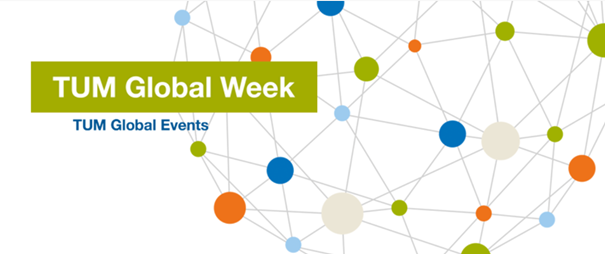
For more information click here
Intertwined - Diseases of Man and Beast and their Impact on Lives and Livelihoods (WHO Webinar Series)
We celebrated World Zoonoses Day on July 6, 2021, to raise awareness about zoonoses worldwide. In support of this day, Prof. Andrea S Winkler took part in the webinar “Intertwined - Diseases of Man and Beast and their Impact on Lives and Livelihoods“. This webinar is part of the LearningSavesLives webinar series by the World Health Organization (WHO), which invited a global panel of experts and practitioners to discuss the impact of zoonotic diseases on our lives, health, and livelihoods, as well as how to build the capacity and systems to address the impact of zoonotic diseases. The objectives of the webinar were to present a common definition of zoonoses, to discuss the correlation to One Health and how zoonoses can be considered within a One Health approach. In addition, experts discussed what needs to be done to effectively address zoonoses. With more than 4000 people registered and 800 participants, the webinar attracted the attention of many interested participants.
The recorded webinar is available to stream on YouTube, click HERE to watch it!
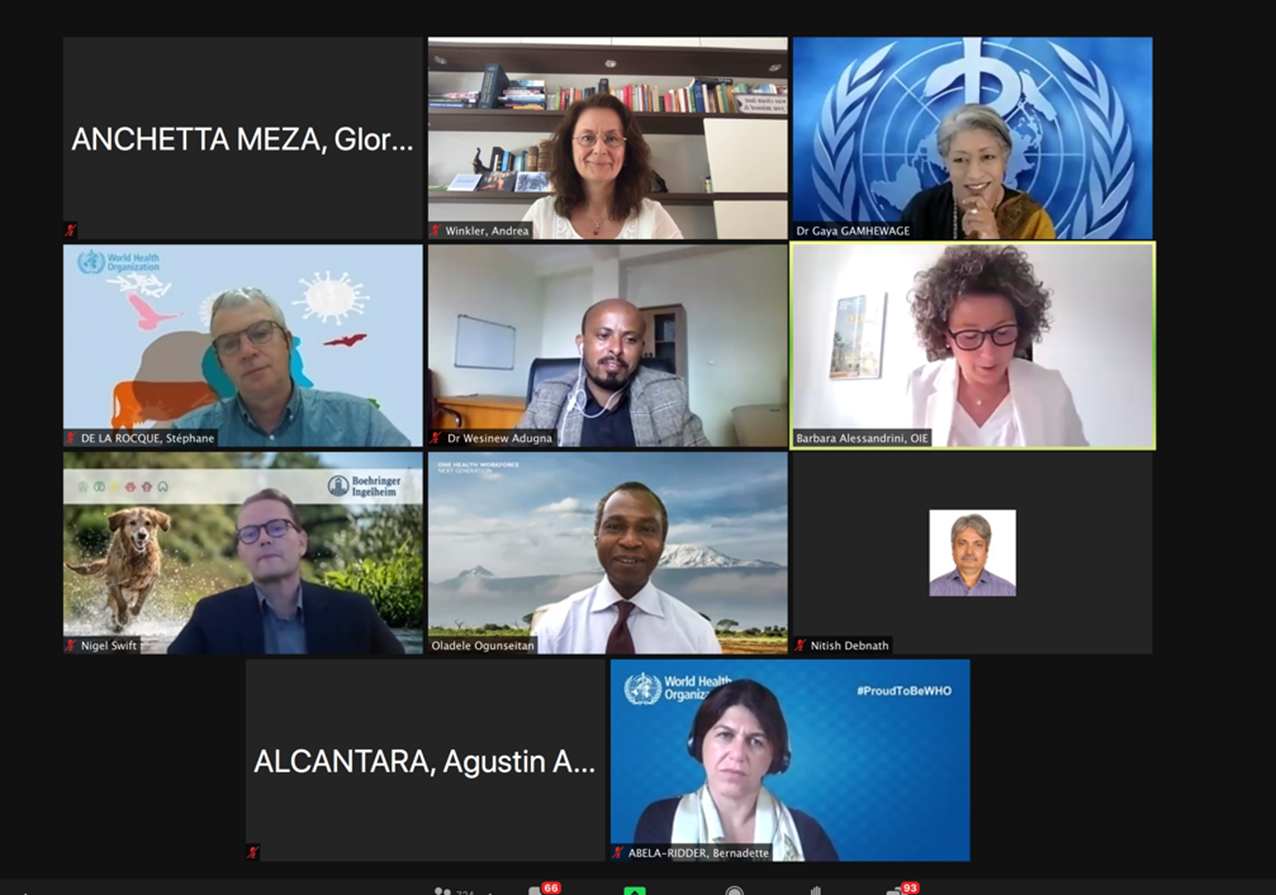
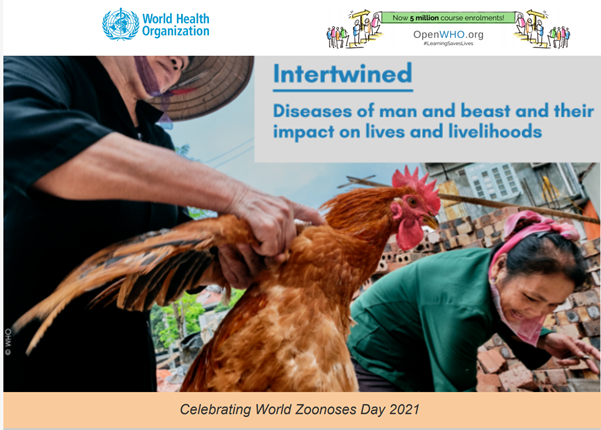
May COVID19 - Neuro Clinical Exchange
To promote discussions on neurological health care in terms of COVID-19, clinicians located all over the world share their experiences during the COVID-19 pandemic within the Clinical Exchange.
On May 18th 2021, the experts focus on Cerebral Venous Thrombosis (CVT) in the context of COVID-19 vaccinations. Prof. Andrea Winkler hosts an interactive talk with David García-Azorín (Spain), Prof. Hoo Fan Kee (Malaysia), and M. Netravathi (India) to discuss their experiences on CVT related to COVID-19 vaccines. The discussion includes aspects of diagnosis of VITT- CVST, risks of CVST in COVID-19 associated with vaccination, current evidence on management of VITT-CVST, suspected underlying mechanisms and the impact on vaccination programs in LMICs.
This special series of expert discussions are co-organized by The Global Health Network and World Health Organization (WHO) Neurology & COVID-19 Global Forum and include different topics related to COVID-19.
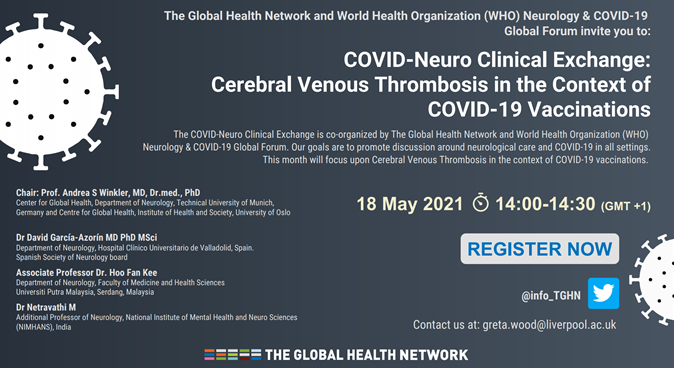
Register Here
Or find out more here
Webinar Series: Impact of the COVID-19 Pandemic in Africa
This special series of webinars is organized by the Benin Society of Immunology (SIB) in collaboration with the team of Prof. Clarissa Prazeres da Costa at the CGH. The webinars focus on various scientific aspects of the COVID-19 pandemic with a spotlight on sub-Saharan Africa.
In the second installment of the webinar series, Prof. Tomabu Adjobimey (SIB) and Prof. Prazeres da Costa (CGH) hosted experts to discuss opportunities and challenges for the SARS-CoV-2 vaccine in Africa. Our keynote speaker, Prof. Don J. Diamond (USA) presented promising potential of his sMVA vaccine candidate against variants of concern in humans. An interactive Q&A session highlighted the impact of co-present pathogens on vaccine efficacy, vaccine hesitancy, and alternatives to vaccines; the role of manufacturing capacities and the impact of patent waivers in facilitating largescale vaccination.
Find the flyer here
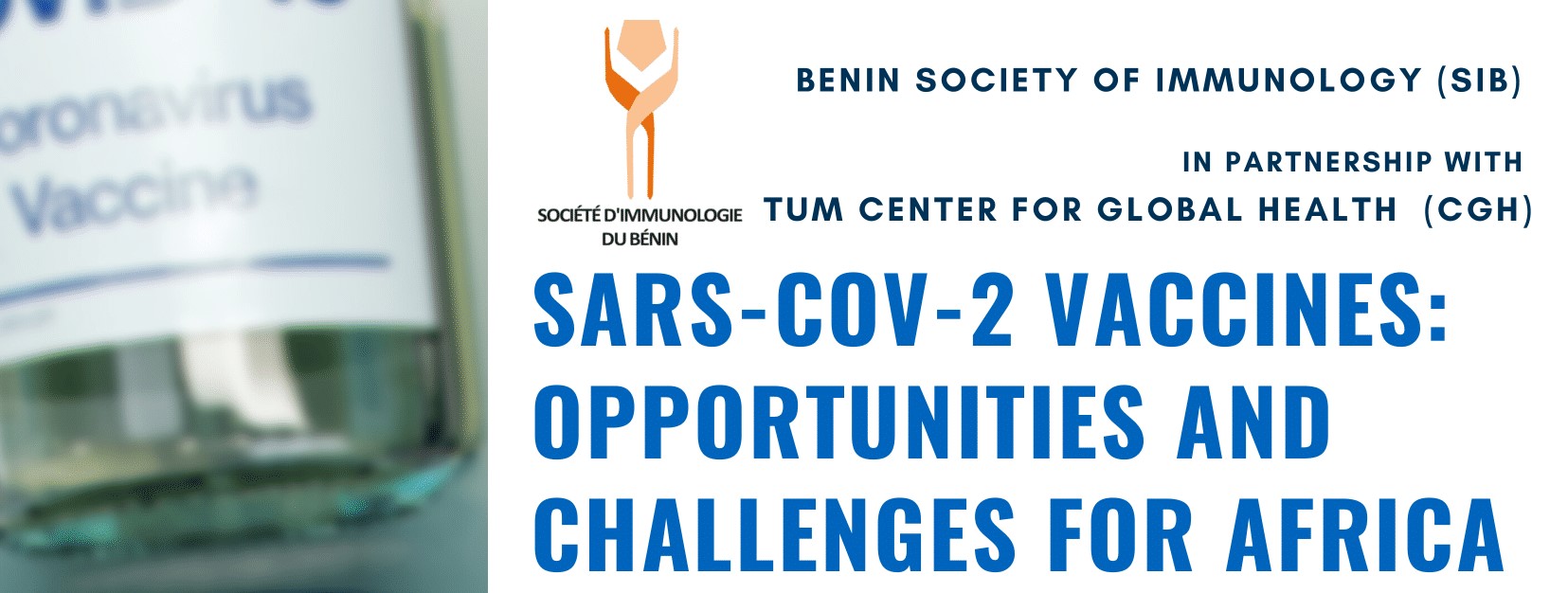
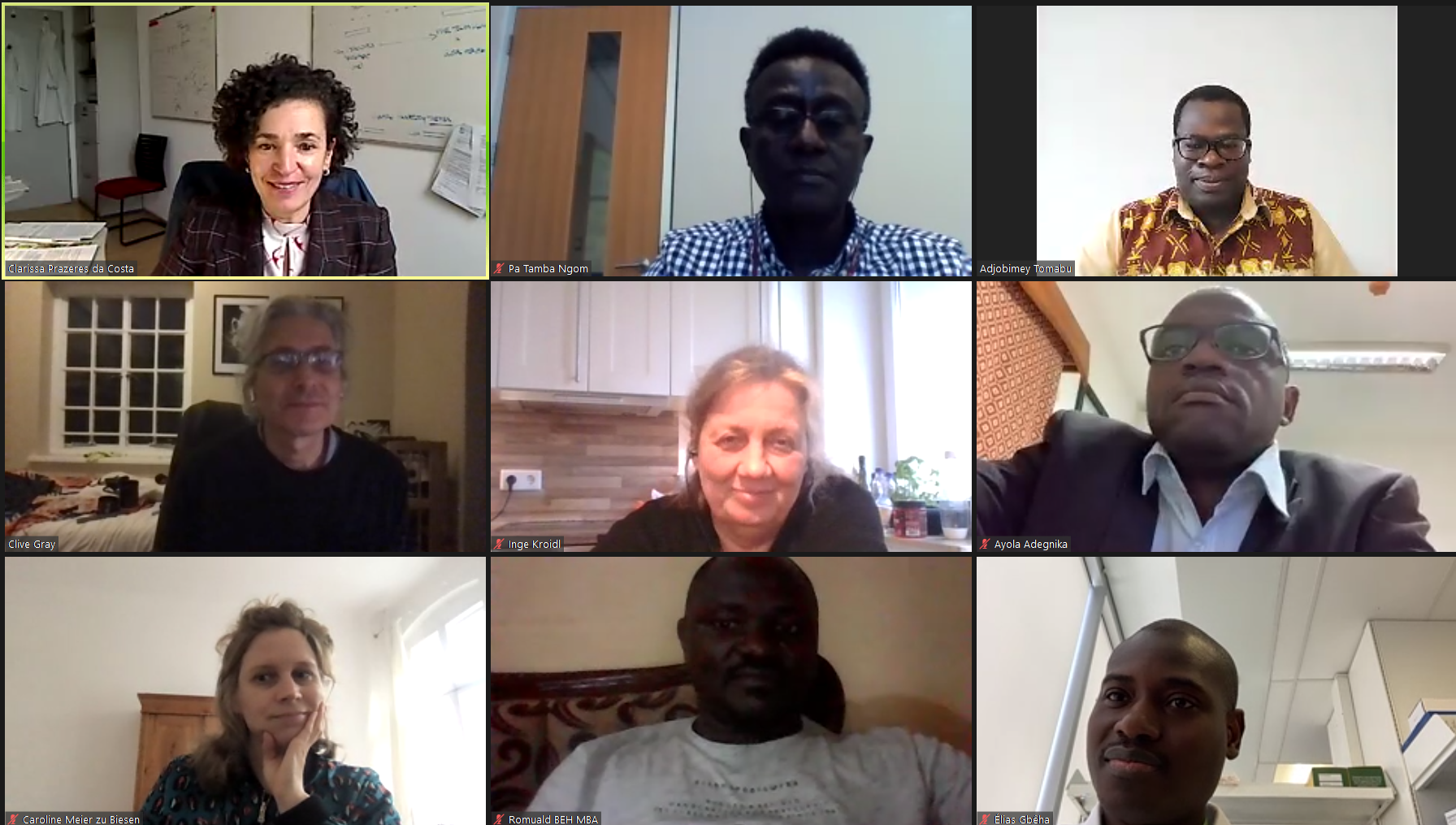
The first installment of the webinar series focused on the immunological aspects of COVID-19 in relation to the ‘African paradox’. Prof. da Costa shared her experiences as a member of the COVID-19 taskforce at the Klinikum Rechts-der-Isar (TUM). The interactive webinar concluded with stimulating discussions between all the participants enlivening questions from scientists and experts from all over the world.
Find the flyer here
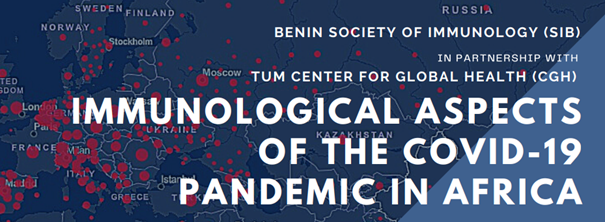
Eighth Virtual Inconception Meeting on Maternal Newborn & Child Health (MNCH)
On the 31st March, Prof. Prazeres da Costa presents on the "Challenges for Women's Health in Sub-Sahara Africa: A Life course Approach" as part of the 8th virtual inception meeting on MNCH. Her guest lecture contributes to the scheme "Grand Challenges Africa" which has been initiated by the African Academy of Sciences to address and significantly impact major health problems in Africa. To tackle the scientific roots of this issue, GC Africa promotes Africa-led scientific innovations to help countries better achieve the SDGs by awarding seed and full grants to the continent's most impressive solutions.
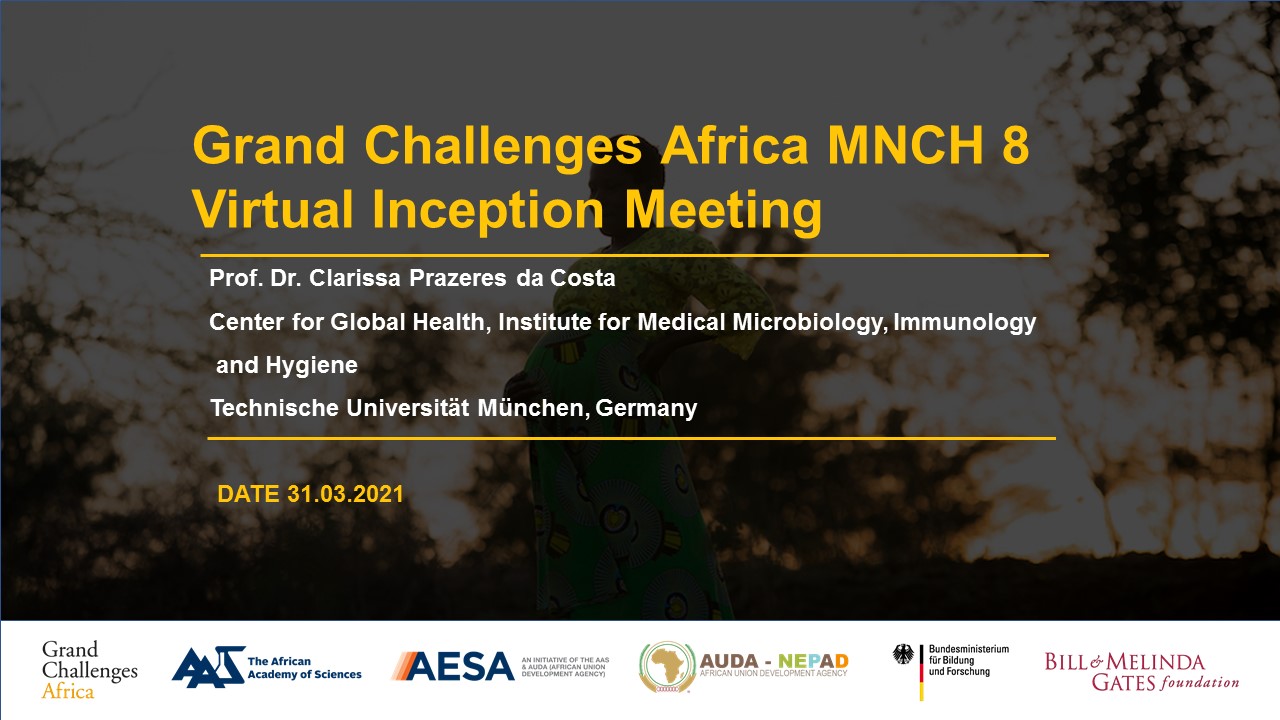
Global Health Conference: Strengthening the role of the EU in the context of Global Health
Global health knows no borders. No country is safe until every country is safe. Dealing with this global challenge calls for a holistic, inclusive and coordinated strategy. In addition, COVID-19 has shown the importance of global solidarity in the response to common threats and the growing health diplomacy in the multilateral system. As Germany is handing the presidency of the European Council over to Portugal, the portuguese Ministry for Health is organising this exciting conference on Global Health. The central issues covered are Global Health diplomacy, leadership in the plan for universal health coverage and the impact of climate change on health.
In this context Prof. Andrea Winkler is leading the session on the Impact of Climate Change on zoonotic vector borne-diseases. This event is happening on the 25th of march 2021.
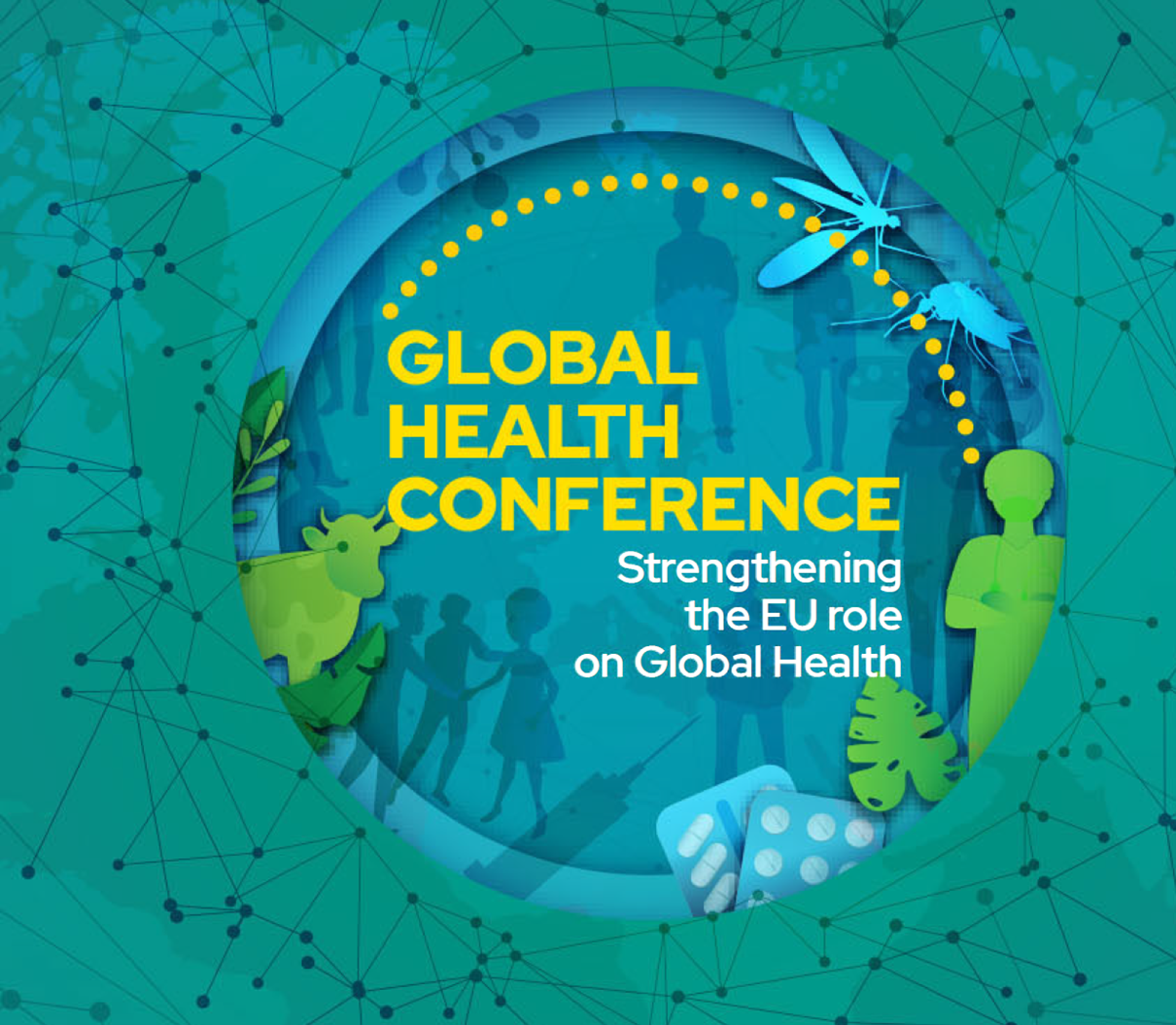
Annual Meeting of the German Society for Parasitology
Professor Winkler is one of the keynote speakers at the annual meeting of the German Society for Parasitology. She and State Secretary Dr. Maria Flachsbarth (BMZ) will talked about the latest developments concerning One Health within the field of parasitology. This year’s focus was on combating neglected tropical parasitic diseases under the 2030 Agenda for Sustainable Development Goals (SDGs), helminth immunology, drug development and One Health approaches. The Annual Meeting happened digitally from the 15th to the 17th of march.
Prof. Clarissa Prazeres da Costa, and her group held key presentations on translational aspects of the laboratory and field research she is leading on novel diagnostics, drug development and understanding the immunological aspects of important neglected tropical diseases (e.g. schistosomiasis, neurocysticercosis), targeted by the WHO new roadmap 2020-2030 for control/elimination and SDG achievement.
Find out more here
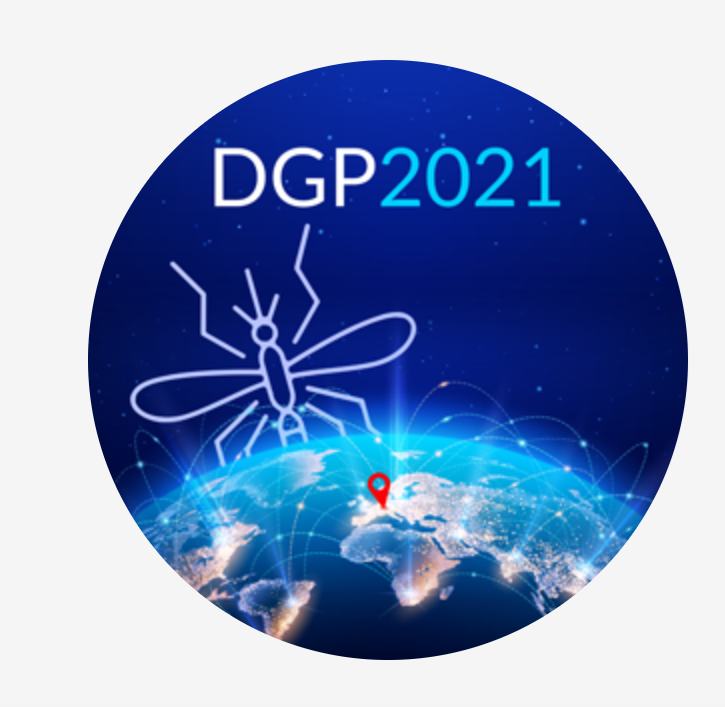
Women in Global Health Netzwerktreffen
During the 4. Networkmeeting of Women in Global Health Germany Prof. Winkler, Dr. Assia Brandrup, Dr. Bernadette Ateghang and Dr. Claudia Hanson will talked about COVID-19, One Health and vulnerable Groups.
Learn more about WGH here
TUM COVID19 Lecture Series
Researchers of TUM and MRI have been invited to give lectures about their work related to the COVID-19 Pandemic. Moderated by Prof. Marion Kiechle, our Co-directors represented the global health perspective on COVID-19. With guests Faith Osier, Fabian Leendertz and John Amuasi, we discuss how global health is implemented in COVID-19 measures and gain insights into COVID-19 developments in the Global South.
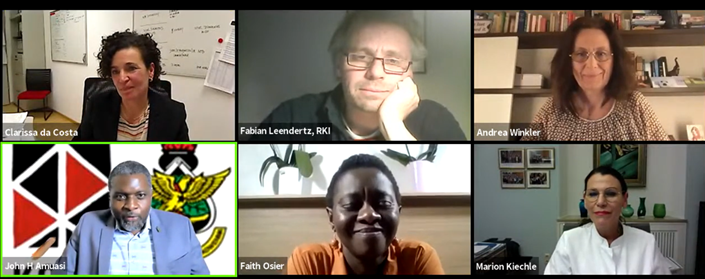
Watch the TUM Lecture Series on YouTube here
Mask-Alliance Bavaria: New partners advance the alliance
High quality and effectiveness of protective masks, particularly those for medical personnel, are indispensable prerequisites to provide protection from airborne infections and thereby contribute to containing the current corona pandemic.The Bavarian Mask-Alliance (Maskenverbund Bayern) is working on development of more effective, safe and sustainable face masks. Our Co-director, Prof. Prazeres da Costa will join the Alliance and contribute her comprehensive expertise to this effort to contain the ongoing pandemic. Insights obtained from this cooperation could also be applied to protective masks for children or to a second generation of simpler mouth-nose-protection masks.
Learn more about the Mask-Alliance Bavaria here
and read about new developments here
Webinar „Back to Normal? Social Justice and the Developmental Origins of Health and Disease in the COVID Era“ - December 7, 2020 at 18 00 - 20 00 CET
The most disadvantaged in our society have been most affected by the COVID-19 pandemic, and they bear the greatest health, social, and economic burden. This is especially true of women and children. The health crisis has highlighted and exacerbated underlying gender, ethnic and socioeconomic inequalities within our societies. In this webinar we will focus on social justice arguments and possible ways to address health and social inequalities exposed by COVID-19. In particular, we seek to put critical social science analyses into conversation with Developmental Origins of Health and Disease (DOHaD) research.
Join us as our Co-director Prof. Prazeres da Costa explores the question of what the new normal should look like within a framework of health and social justice.
Watch the recoring of the webinar here
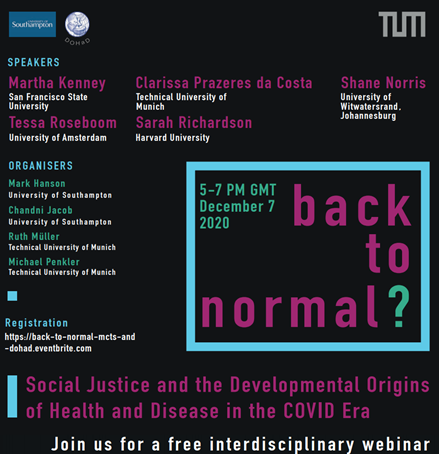
World Health Summit 2020 - Pandemics and Operationalizing One Health
The World Health Summit 2020 took place from 25-27 of October in Berlin and for the first time the event was fully digitalised and available to everyone for free. All 50 keynote sessions, panel discussions and workshops were broadcast live via Zoom and are now individually available on Youtube.
Prof. Andrea Winkler, in her role as Co-Chair of The Lancet One Health Commission hosted two sessions on Monday. She chaired the session on Pandemics and Operationalizing One Health together with Dr. John Amuasi (Co-Chair, The Lancet One Health Commission). Panellists included Dr. Maria Flachsbarth (Parliamentary State Secretary, BMZ), Dr. Anthony Nsiah-Asare (Presidential Advisor on Health, Ghana), Dr. Camilla Stoltenberg (Director General, Norwegian Institute of Public Health) and Jean Scheftsik de Szolnok (Head Animal Health Unit, Boehringer Ingelheim). The session focused on the Global Action Plan (GAP) for Sustainable Development Goal 3 and how the One Health Approach could catalyse the paradigm shift that the GAP demands in order to accelerate progress towards SDG 3. Further, the panel explored the added value of One Health and how One Health could be operationalised in the fight against pandemics, such as COVID-19.
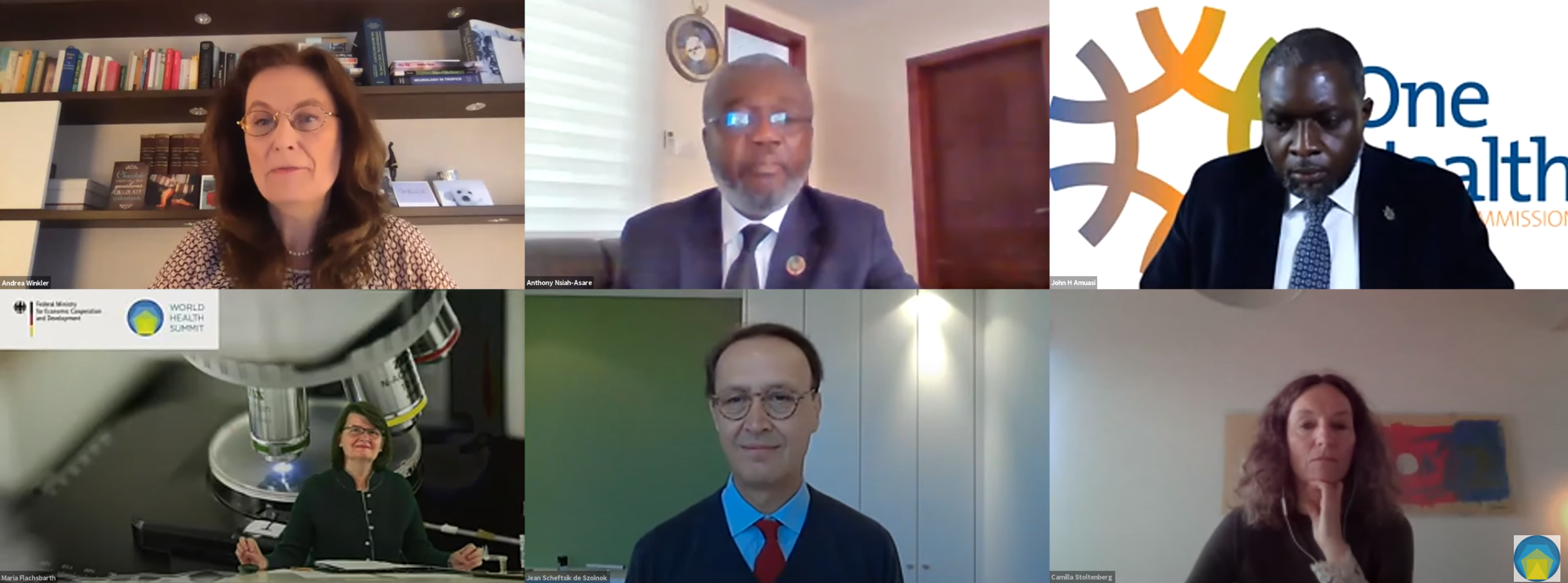
World Health Summit 2020 - Climate Change and One Health - Critical Action for a Sustainable Planet
The second session entitled Climate Change and One Health – Critical Action for a Sustainable Planet with Dr. John Amuasi (Co-Chair, The Lancet One Health Commission), Prof. Dr. Tony Capon (Director, Sustainable Development Institute, Monash University, Australia, Prof. Dr. Sabine Gabrysch (Professor for Climate Change and Health, Charité Berlin), Dr. Benjamin Roche (Research Director, Infectious Diseases and Vectors, IRD, France) discussed climate change from a One Health and Planetary Health perspective and used different example such as urban health, infectious diseases and food security to illustrate the relevance of a One Health approach to mitigate the effects of climate change.
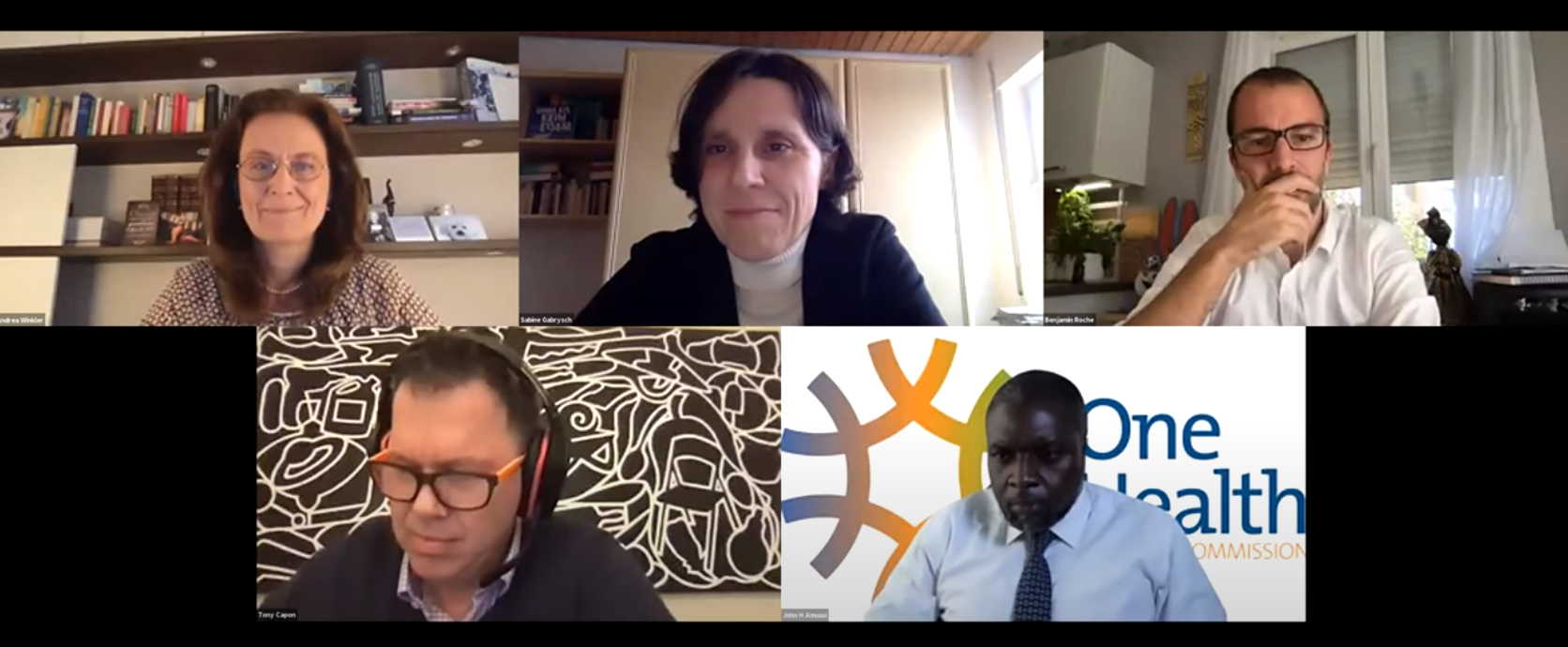
Webinar - Impact of the COVID-19 Pandemic on Pregnancy, Birth and Sexual & Reproductive Health and Rights
The Women in Global Health (WGH) Germany COVID-19 Task Force along with WGH Somalia co-hosted a webinar on the impact of the COVID-19 crisis on the daily work of midwives and obstetricians as well as on the general health care services in both countries. This transformative exchange brought together experts from Germany and Africa to highlight the common challenges faced by healthcare workers in both countries as well as the difficulties of access and availability of key healthcare services.
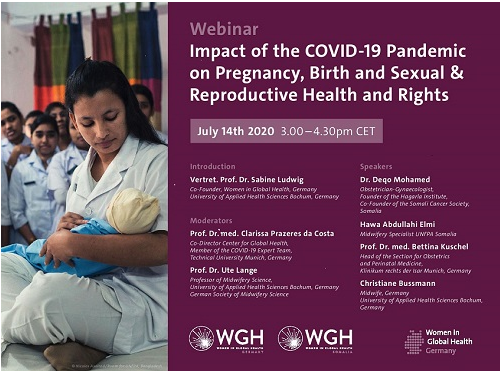
Watch it here
Read it here
Register for future webinars here (Link to follow)
This is first in a series of webinars organized by The Women in Global Health Germany COVID-19 Task Force.
Webinar - The “Triple Dividend”: Investing in Gender Equality within the Global Health Workforce
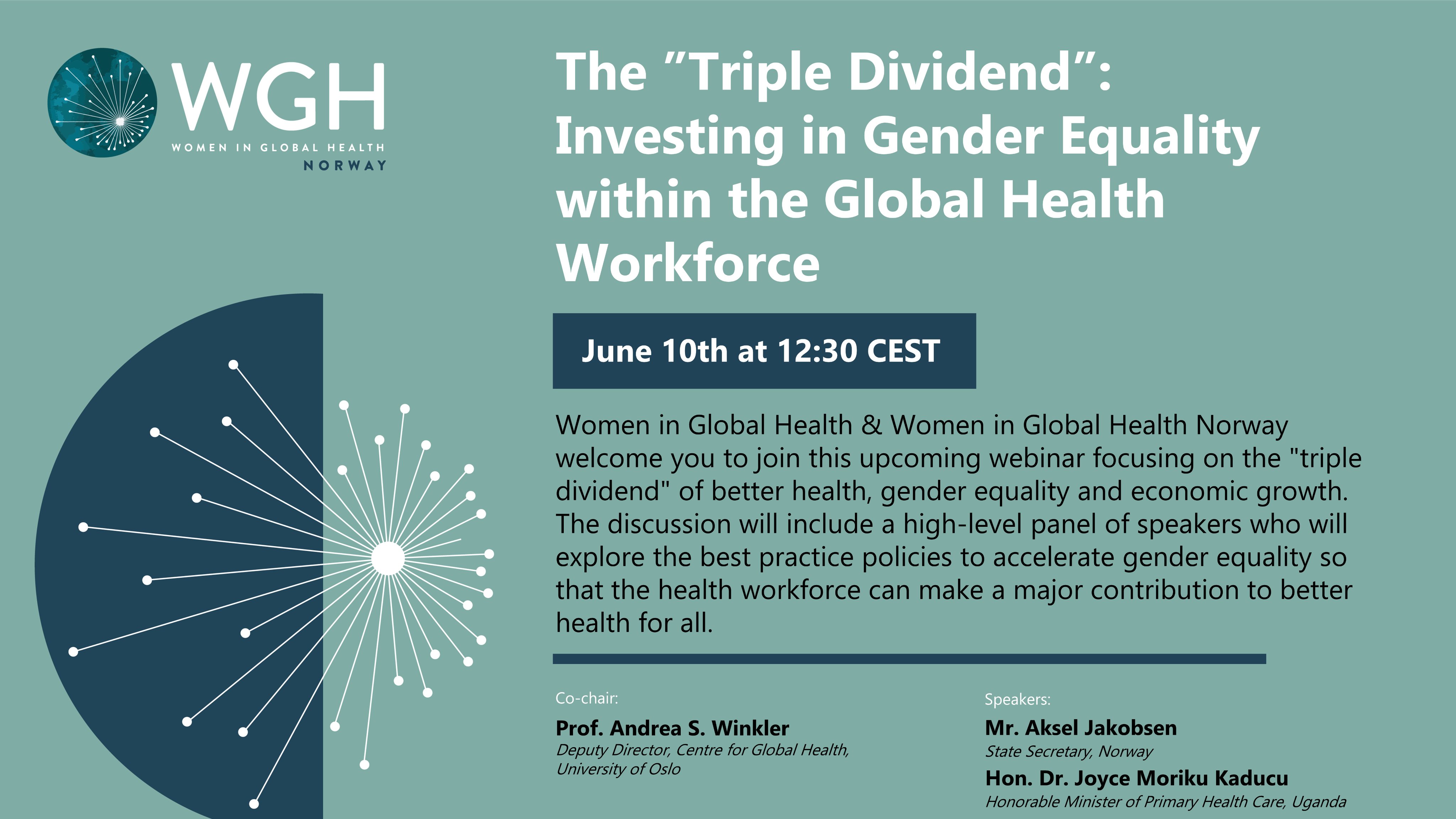
Prof. Andrea Winkler (Founding Director, WGH Norway, Advisor to and Member of WGH Germany) and Prof. Clarissa Prazeres da Costa (Member of WGH Germany) have inspired the establishment of a COVID-19 Task Force across both networks and are, along with the team at CGH, active members of Women in Global Health Germany.
Webinar - The Lancet One Health Commission Webinars
Since the outbreak of COVID-19, The Lancet One Health Commission has conducted a webinar series under the title One Health – Reconnecting for Our Future, covering topics such as the importance of a One Health perspective during pandemics as well as its importance for health security in the future, and which challenges and opportunities young professionals should expect in the field of One Health.
You can register for future webinars here

Or watch the previous ones here
Prof. Andrea Winkler, as co-chair of The Lancet One Health Commission together with Dr. John Amuasi (KCCR, Kumasi, Ghana) is advising the German Federal Ministry of Health (BMG) on their potential One Health approach.
Virtual Discussion - LET ME…talk about it @TUM
As a member of the COVID-19 team of experts at the Klinikum Rechts der Isar, Prof. Clarissa Prazeres da Costa gives us insights into her work and the consequences of the COVID-19 crisis locally and globally.
Listen to the talk here
LET ME… is Medical Humanities Program at TUM to promote a humane perspective for the responsibilities of physicians.
Podcast - Health is Wealth under the Coronavirus
Can we put a price on global health in the time of COVID-19? Mel and Steff from Pod of Gold interview Prof. Clarissa Prazeres da Costa, to discuss the potential fallout of the current pandemic.
Listen to the podcast on Apple or Spotify
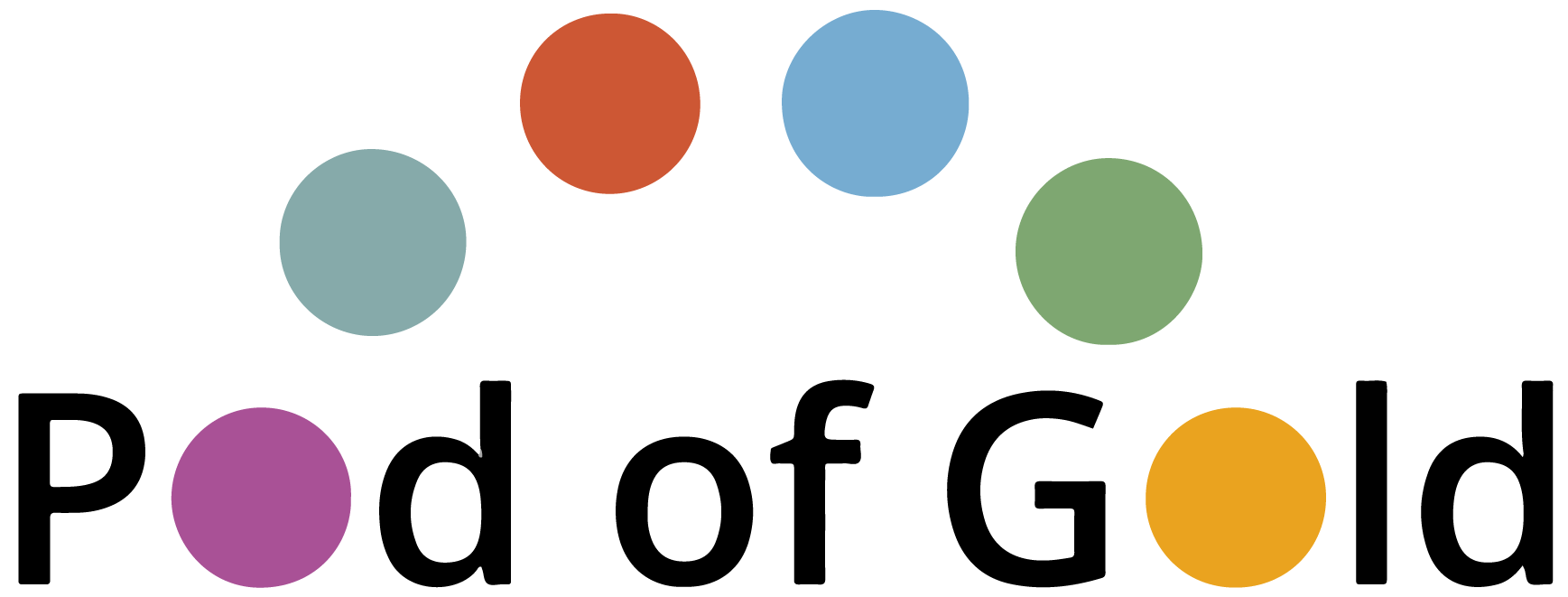

Podcast- The Lancet Digital Health Podcast
Prof Andrea Winkler serves on The Lancet Digital Health’s advisory board and was invited for an interview to discuss the journal’s first anniversary. The journal emphasizes ways in which digital technology can help to solve human challenges, including COVID-19. The Lancet Digital Health’s approach to the potential benefits of technology for healthcare is rooted in science, culture, and ethics. Since its launch, the journal has worked on supporting robust and reproducible digital health research, and uniting researchers and clinicians from different disciplines, helping them to discover, collaborate, and inspire.
Listen to the podcast here (under “The Lancet Digital Health turns One”).
Prof. Winkler is the second speaker.
Video - Information about COVID-19 for African Countries
The Basic Internet Foundation together with the Center for Global Health at University Oslo and our Center for Global Health at TUM (scientific lead for video content Prof. Andrea S. Winkler) produced a Video containing important information about how COVID-19 is spread, what the main symptoms are and what you need to do to protect yourself and your community.
Watch it here
Report - ARD-alpha: Afrika und Corona: Bahnt sich eine Katastrophe an?
Prof. Andrea Winkler is discussing with Tilman Seiler the implications the Covid-19 crisis might have for the African continent.
Watch the report here
Report - ZDF Report on Community Prevention through Masks
In this ZDF Mediathek report our Prof. Clarissa P. da Costa demonstrates the correct way of wearing community masks!
Watch the report here
Skip to 12:00 for the full report
To stay updated with the latest developments concerning COVID-19 follow us on Facebook and Twitter
Projects & Publications
Position Paper in the Deutsch Ärzteblatt: Auch eine soziale Pandemie (- also a social pandemic)
A collaborative project has been undertaken between the Chair of Medical Ethics and Health Technology (Prof. Alena Buyx, Dr. Amelia Fiske) and our Center for Global Health (Prof. Andrea Winkler, Andrea Buhl) at the Technical University of Munich and published in The Deutsche Ärzteblatt. The article discusses that the COVID-19 crisis clearly demonstrates the disadvantage of a too narrow epidemiological and/or biomedical response to a pandemic. Alliances with disciplines such as the social sciences and humanities are needed to avoid or contain collateral damage during the pandemic. Reference is made to the effect of COVID-19 on healthcare systems at large, the role that pre-existing health and environmental inequities play and the impact that a lack of access to palliative care has on the dying and their relatives.
Read it here
One Health or Planetary Health for pandemic prevention? - Authors' reply. Amuasi JH, Winkler AS.
The two co-chairs of The Lancet One Health Commission, Dr. John Amuasi and Prof. Andrea Winkler have been invited by The Lancet to a discourse on pandemic prevention. They challenge the concepts of One Health and Planetary Health, arriving at the conclusion that the One Health and Planetary Health movement must join forces to successfully design, undertake, coordinate and synthesize research to promote a healthy and sustainable planet. (Lancet. 2020 Dec 12;396(10266):1882-1883. doi: 10.1016/S0140-6736(20)32392-8)
For more details click here
The Berlin principles on one health - Bridging global health and conservation. Gruetzmacher K, Karesh WB, Amuasi JH, Arshad A, Farlow A, Gabrysch S, Jetzkowitz J, Lieberman S, Palmer C, Winkler AS, Walzer C.
We are proud that Prof. Andrea Winkler has been invited to the expert group of the Berlin Principles on One Health. The principles have been established through an iterative process with experts and a public consultation, the One Planet, One Health, One Future conference convened by the Climate and Environmental Foreign Policy Division at the German Federal Foreign Office and the Wildlife Conservation Society (WCS) in October 2019. The Berlin principles have now been published and argue that in the light of the current pandemic, now more than ever, the health of humans, non-human animals and the ecosystem must be re-connected for a sustainable future and to be better prepared for the next pandemic. (Sci Total Environ. 2020 Oct 12:142919. doi: 10.1016/j.scitotenv.2020.142919. Online ahead of print.PMID: 33097250)
Read it here
Faszination Forschung
The TUM's Science Magazine offers interesting insights into science and research. In the latest issue, we highlight Prof. Clarissa Prazeres da Costa and her lab team's work on infectious disease research in low and middle income countries. Specifically, we focus on the immune mechanims of host response to parasitic worms and its implications for global health research.
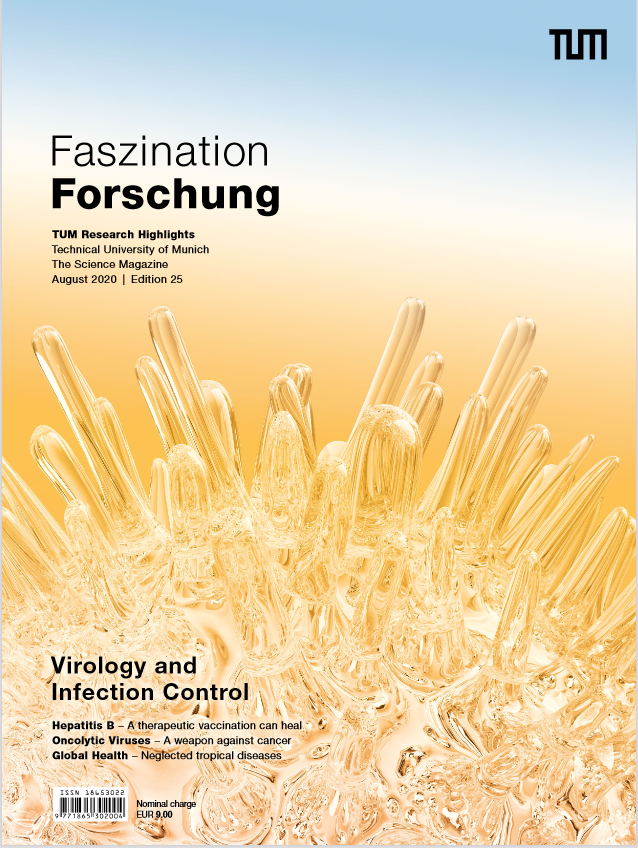
Worm infections are widespread in low income countries. Clarissa Prazeres da Costa investigates how these neglected tropical diseases affect the immune system.
Global Health Needs a Multidisciplinary Approach
"Ensuring healthy lives for all" is one the United Nations' Sustainable Development Goals. The Center for Global Health at the TUM School of Medicine is addressing these topics.
TUM CHANGE: Science, Reason, Sustanability - Food for Thought for the Post-Corona World
The TUM Emeriti of Excellence published a new book called CHANGE 'Science, Reason, Sustainability - Food for Thought for the Post-Corona World' covering a broad range of topics: politics and society, basic science, technology, IT and connectivity to the African perspective.
We at the CGH have proudly published four articles in this new book on the topic of Global Health on page 216,220,284 and 292. For a brief insights into our articles and/or read the full articles, click here
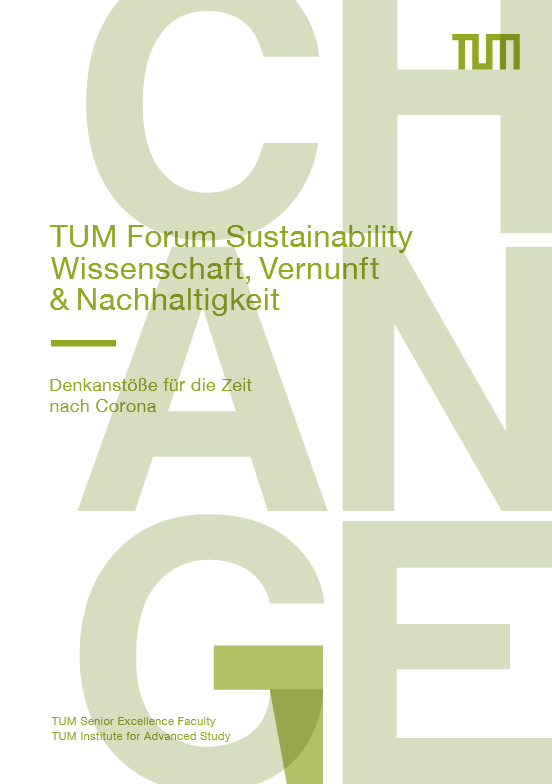
The COVID-19 One Health Research Coalition
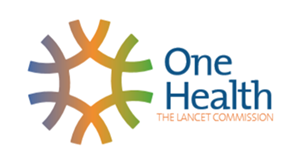
The call for the establishment of an inclusive and transparent COVID-19 One Health Research Coalition, published in The Lancet, focuses on strengthening linkages with the evolving climate change and planetary health research community in order to contribute to preventing emerging diseases like COVID-19. This call was launched by Prof. Andrea S. Winkler (TUM) and John Amuasi (KNUST) as the Co-Chairs of The Lancet One Health Commission, together with colleagues from the Wildlife Conservation Society and the London School of Hygiene & Tropical Medicine and some others. This multidisciplinary and multilateral coalition aims to guide the research community and research investors towards coordinating and undertaking research at the human–environment–animal interface for the prevention of future pandemics and the creation of a healthy and sustainable future for our planet.
Learn more about the Coalition here
Or read about the launch of The Lancet One Health Commission here
The Global COVID-19 Neuro Research Coalition

Read more here
Email at covid19.neuro@med.tum.de if you are interested in joining this community.
The Impact of COVID-19 on Refugees in Germany
Since Mid-February, Germany has been testing new migrants for the SARS-Cov-2 and taking precautionary measures for positive cases. However, emerging evidence suggests asylum-seekers and refugees are often not adequately informed about infection hazards and the logistics of social distancing on arrival. The COVID-19 pandemic poses a major challenge for the management of collective accommodation centres for refugees. The often-overcrowded facilities hinder adequate implementation of social distancing and hygiene practices. Satisfactory information dissemination as well as a rapid and efficient management of suspected and confirmed COVID-19 cases are essential. However, scientific evidence on this is largely lacking. Our student, David Kamiab Hesari and Marrium Habib, Co-Coordinator for the CGH - Global Infection Immunology report on the situation.
Read the report here
The Impact of COVID-19 on Academics in Germany & sub-Saharan Africa (SSA)
Emerging evidence suggests that the COVID-19 crisis and its subsequent restrictions is exacerbating pre-existing gender inequities not only for healthcare workers involved in acute crisis management on the frontlines, but also for academics and scientists in research. Females are bearing the brunt with negative research productivity and journal submissions are exhibiting lower women and solo-authored female-led articles. While evidence for the impact of the COVID-19 crisis on women in high-income countries (HICs) is well documented, the impact of women in low-and-middle-income countries, especially Sub-Saharan Africa (SSA), is still understudied. Prof. Clarissa da Costa, Co-Director CGH and Marrium Habib, Co-coordinator at CGH, have pioneered an effort to capture the impact of the COVID-19 crisis on academics professional output in Germany and SSA. A brief questionnaire was circulated amongst male and female research scientists and academics hailing from Germany and eight SSA countries to capture meaningful data on the impact of this pandemic on their work-life balance, productivity and research output.
Read more here (Link to follow)
This is part of the ongoing Women’s Health Working Group Initiative (WHWG) led by Prof. Clarissa Prazeres da Costa and Marrium Habib
The Global SOLIDARITY Trial & the Focality of the WHO
The crisis management and politicization of the World Health Organization (WHO) secretariat during the COVID-19 pandemic raises questions about its relevance in global health politics. Dr. Clarissa Prazeres da Costa teams up with Prof. Eugénia da Conceição-Heldt & Prof. Janina Steinert at the TUM School of Governance, Dr. Martin Schlegel, Klinikum Rechts der Isar and Dr. Andreas Ullrich, Charité Medical University to investigate whether the WHO is able to regain focality with its innovative approach of the a worldwide clinical megatrial, known as the SOLIDARITY trial. This research project will assess in detail the processes leading to the emergence, dynamics, institutional design (governance structure), and implementation of this new megatrial initiative through expert interviews with officials from the WHO, national health ministries, research institutions participating in the trial, pharmaceutical companies and philanthropic actors involved. The results of this study will enable an assessment of if the WHO was able to regain focality and to provide a global public good through the SOLIDARITY trial as a blueprint for future public health responses.
Learn more here
Resource and Information Hub for COVID-19
Women in Global Health Germany
The team at CGH are active members of the WGH, Germany and the Co-Directors advise the WGH Germany COVID-19 Task Force and engage in COVID-19 and gender issues across the global platform; writing opinion pieces, organising webinars and participating in scientific and political discussions centred around COVID-19.
Read the statement here (German)
Read about COVID 50/50 here
Read the five ‘ASKs’ for global health security here
Lancet One Health Commission
The ambition of The Lancet One Health Commission is to offer a recalibrated understanding of the ways in which contemporary global health challenges are implicated within the complex interconnectedness of humans, animals, and our shared environment, and to provide an approach for harnessing this knowledge to ensure a sustainable healthy future.
Learn more here
Or read an article in The Lancet here
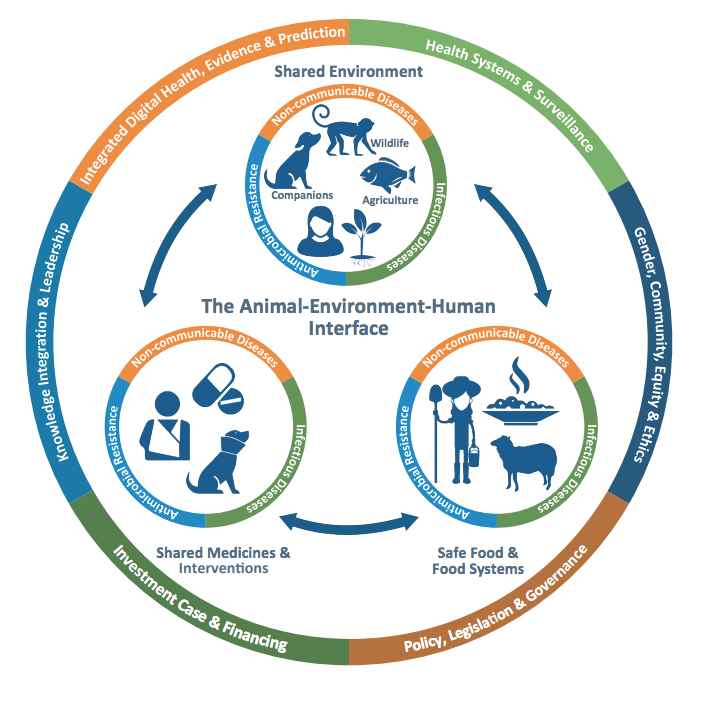
Geneva Health Forum 2020
The Geneva Health Forum (GHF) is the forum of innovative practices in Global Health. Created in 2006 by the Geneva University Hospitals (HUG) and the Faculty of Medicine of the University of Geneva. It is one of the most important international conferences on Global Health, with crucial global health actors such as the WHO, establishing key partnerships
Register here
World Health Summit Berlin 2020
The World Health Summit is one of the world’s leading strategic forums for global health which brings together leaders from politics, science and medicine, the private sector, and civil society to set the agenda for a healthier future. In this very special year of the COVID-19 pandemic, the World Health Summit will take place as an on-site conference in Berlin and at the same time as a fully digital, interactive conference with cost-free availability of all sessions of the program
Read more here
WHO Global Solidarity Trial
Globally, the more than five million cases of COVID-19 have wreaked havoc on families, societies and economies. In this critical time, the WHO has stepped up to address this momentous health crisis with the SOLIDARITY Clinical Trial to find a cure for Covid19. The SOLIDARITY trial brings together a global research consortium under the umbrella of the WHO to test the four most promising possible treatment options.
Stay updated here
73rd World Health Assembly
The first-ever virtual world health assembly convened on 18-19 May 2020 focusing on strengthening multilateral cooperation in response to the COVID-19 pandemic. The impact on sub-Saharan African countries can only be cushioned by equitable access to diagnostics, therapeutics and vaccines to combat the virus.
Read our summaries here


